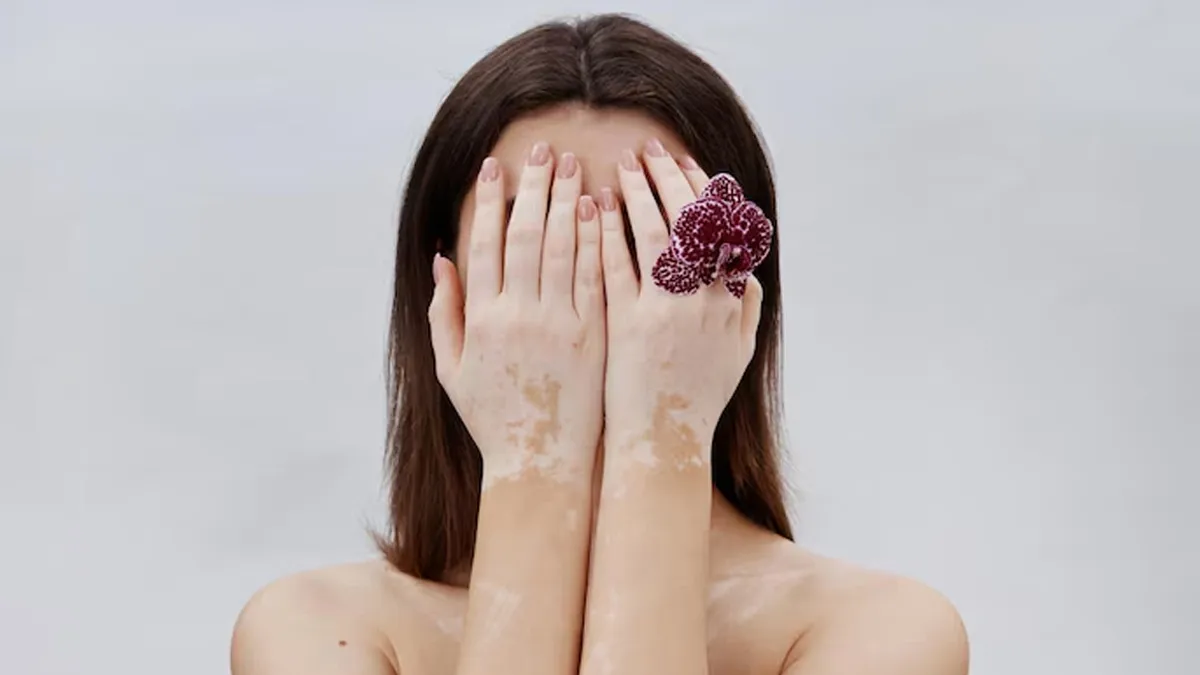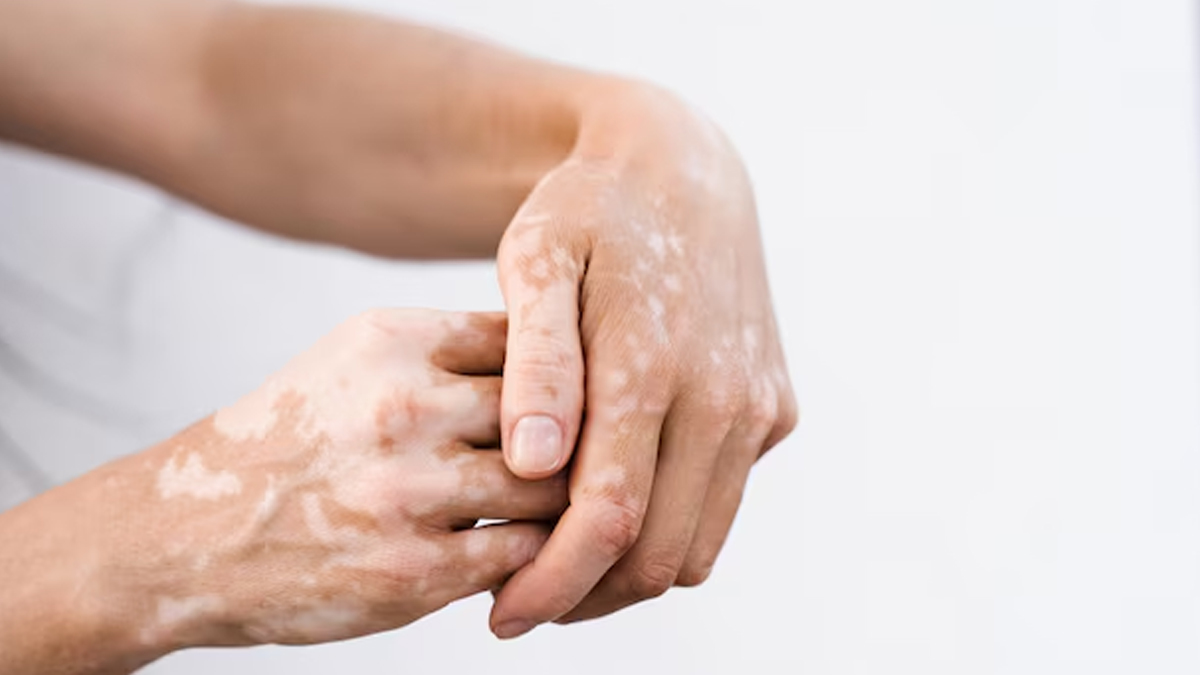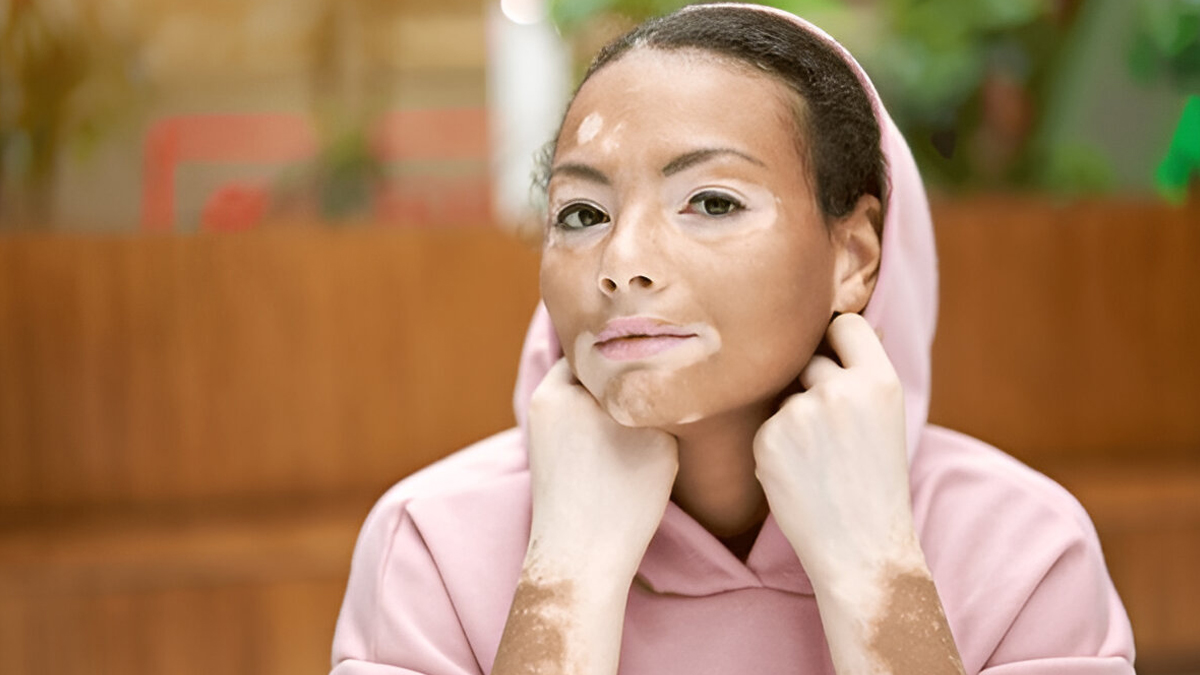
Vitiligo, a condition characterised by loss of skin colour in the form of white spots, is commonly regarded as a cosmetic condition. But for millions around the world, its psychological effect lies much deeper than the skin. Though not physically painful, vitiligo can seriously impact self-esteem, social relationships, and overall mental health.
Table of Content:-
CHECK YOUR
MENTAL HEALTH

We spoke to Dr Sandeep Vohra, Psychiatrist and Founder, NWNT.AI, who explained the impact of vitiligo on your mental health.

“At a biological level, vitiligo occurs when melanocytes, the skin’s pigment-producing cells, are mistakenly attacked by the body’s immune system. This leads to patches of white skin which begin small but can spread over the body gradually,” said Dr Vohra.
Vitiligo is not life-threatening or contagious. But that doesn't make it 'just cosmetic.' It becomes a highly individual and social battle in most instances. The issue isn't with the condition itself, but with the way society responds to it. While it occurs in about 1–2% of the world's population (according to a 2019 study), the impact of the condition is out of proportion emotionally. Individuals with vitiligo tend to be subjected to public judgment, intrusive glances, social rejection, and sometimes outright discrimination.
Also Read: Breaking Down The Myths: Understanding Vitiligo And Promoting Inclusivity
How Vitiligo Impacts Mental Health
From a psychiatric standpoint, the psychological toll is significant. According to a 2024 Journal of Psychodermatology published study, more than 50% of people with vitiligo have symptoms of depression, and over 60% experience anxiety or social withdrawal.” A majority of voices feel embarrassment, low self-esteem, and an ongoing fear of judgement, particularly in societies in which even minor deviation from beauty standards is severely condemned,” added Dr Vohra.
The Global VALIANT study (published in JAMA Dermatology, late 2023) polled adult vitiligo patients and reported that 89% of Indian participants experienced moderate to severe depressive symptoms; more than 70% of widespread vitiligo patients also reported effects on daily life and well-being.
Children and adolescents with vitiligo are especially vulnerable. School-age patients often experience bullying or social exclusion, which can lead to long-term issues like chronic anxiety, body dysmorphia, or even suicidal ideation.
For most, these emotions aren't fleeting moments. They become internalised, influencing anything from everyday interactions to long-term self-esteem. Individuals with vitiligo tend to cite avoidance of social functions, avoiding intimacy, and feeling ‘less than’ due to their appearance alone.
The Pressure to Look ‘Normal’: Cultural and Social Stigma

The solution is in the value that society places on appearance. Our skin is the first thing people see, it plays a central role in identity, acceptance, and even desirability. "In cultures with rigid beauty standards, especially across parts of South Asia and Africa, vitiligo is often misunderstood. Some believe it’s contagious. Others see it as a sign of poor hygiene, karma, or even bad luck. These myths only add to the sense of isolation for those living with the condition," added Dr Vohra.
How To Deal With Mental Health Pressure?
Dr Kulkarni believes that mental health must be seen as an essential part of vitiligo treatment. You can treat the skin, but unless you treat the mind, the healing isn’t complete, he said.
Dermatologists and psychiatrists need to work collaboratively to address both physical and emotional dimensions. Unfortunately, mental health screenings are not routinely conducted during dermatological consultations, leaving many patients to suffer in silence.
Therapeutic care, whether Cognitive Behavioural Therapy (CBT), support groups, or family therapy has the potential to be lifesaving. A 2021 review from the UK points out that psychodermatology, a model integrating dermatology with psychological care, results in greater patient satisfaction in Indian contexts than conventional dermatology treatment.
Moreover, public awareness and inclusive representation in media and advertising can go a long way in reshaping societal attitudes. When people with vitiligo are visible in fashion campaigns, movies, and leadership roles, it normalises difference and affirms dignity.
Bottomline
Dr Vohra concluded, "Vitiligo is more than skin deep. The psychological scars it can leave are often invisible but very real. By integrating mental health into dermatological care, dismantling stigma, and encouraging open conversations, we can ensure that those living with vitiligo are seen, not just for their skin, but for their strength."
[Disclaimer: This article contains information provided by an expert and is for informational purposes only. Hence, we advise you to consult your professional if you are dealing with any health issue to avoid complications.]
Also watch this video
How we keep this article up to date:
We work with experts and keep a close eye on the latest in health and wellness. Whenever there is a new research or helpful information, we update our articles with accurate and useful advice.
Current Version